The Music Lovers
29 October 1971
Following on from the seriousness of ‘Pollution’ and the more middling antics of ‘The Lost Tribe’, ‘The Music Lovers’ is fast-moving, silly fun of the highest order. We start out with the ‘stealing’ of musicians: first a string quartet giving an open air concert (to an audience of three—the Goodies), then Scottish tenor Kenneth McKellar singing live on TV (at least, we assume it’s live; if not, the scheduling of the broadcast is even funnier); then what we can only take to be the BBC’s house band, the Northern Light Orchestra, which isn’t there when called upon to fill the void. The final piece of scene-setting comes by way of newsreader Corbet Woodall:

Yes, musicians everywhere are being taken—even Rolf Harris. (There’s quite a bit of Rolf-bashing this episode. Cilla Black may prove the Goodies’ nemesis but nobody will be surprised when it’s the bearded one who features in Series 5’s ‘Scatty Safari’.) Sensing something amiss, the Goodies take it upon themselves to dig deeper. As usual, it’s Graeme who comes up with the plan:
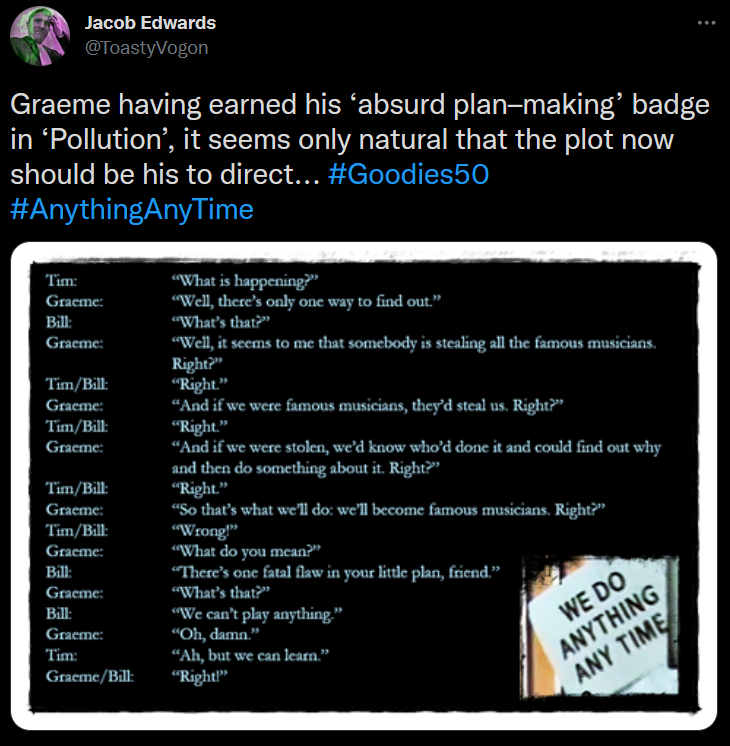
Having mastered the flute, banjo and triangle (in five seconds!), the lads then do their utmost to become famous musicians. Their first attempt is made there and then, without publicity and without an audience of any kind (save the 1.9 million viewers tuning in on BBC2). Nonsensical in its conception, this initial undertaking—a virtuoso performance of ‘Land of Hope and Glory’, rendered with glee singers and electric guitar!—has the equally ludicrous outcome of having Tim’s female accompanists taken but the Goodies themselves left behind. (Bill: “Oy! What about us?” Gerald: “You ain’t good enough.”)
And so they try again:

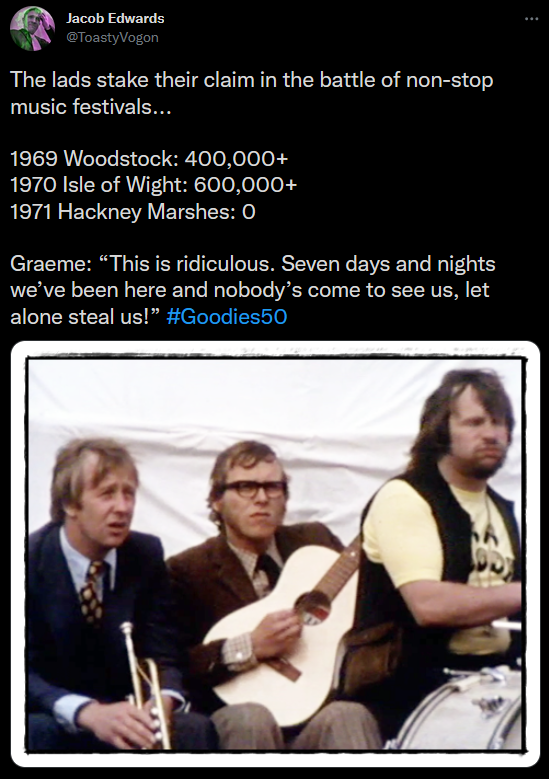
These sequences are chock full of musical jokes: Bill’s tuning the piano with a large spanner (until every key plays the same note); Graeme’s Russian-doll string instruments; the super-stretchy piano accordion; and of course the litany of innovative misappropriations that enable the lads to perform non-stop for seven days. The logic here is impeccable: they have to be playing all the time. Hence, Graeme slices potatoes by strumming them on his guitar. The piano doubles as a barbeque, the tambourines as plates. All the brass instruments contain drinks. The kettledrums serve a dual purpose as cooking pots and then Tim’s bath!
And such repurposing[1] would only grow more extreme in Part 2’s showdown with the Music Master:
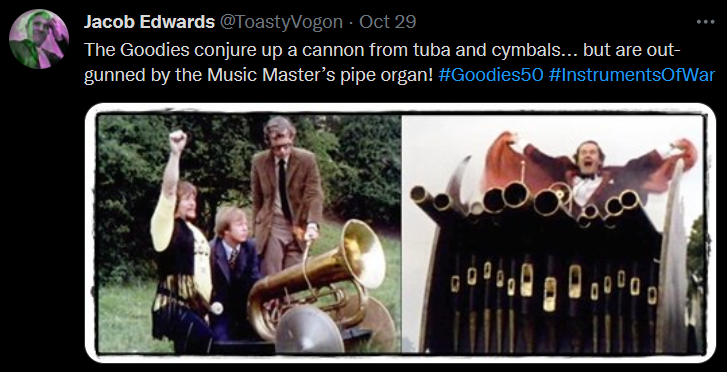
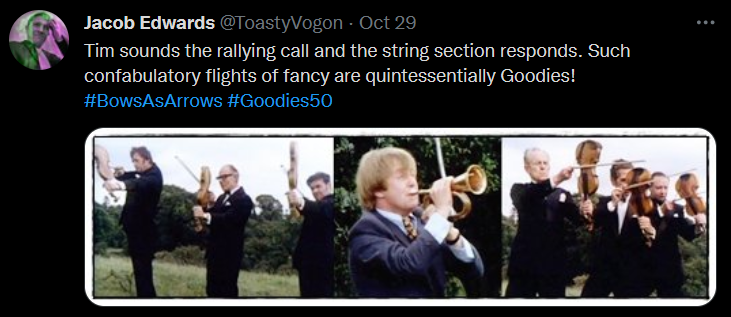
Unsurprisingly for a story so much about music, ‘The Music Lovers’ features a lively soundtrack. First, there is ‘Land of Hope and Glory’ (the beginning of the Goodies’ real-life dalliance with pop stardom), then ‘The Philharmonic Glee Club Rock‘n’Roll Band’, a high-spirited if minimalist festival anthem (“We organised a concert, told them it was free; half a million people didn’t come to see”), then at last the ‘Square Dance’, an in-character performance that runs on to become one of The Goodies’ classic musical backdrops (most notably heard throughout the mashed-up capers of ‘The Movies’). Fittingly, the episode ends with singer Cilla Black, whom the Goodies left locked up, tracking the lads down and wreaking vengeance with her infamous high notes:
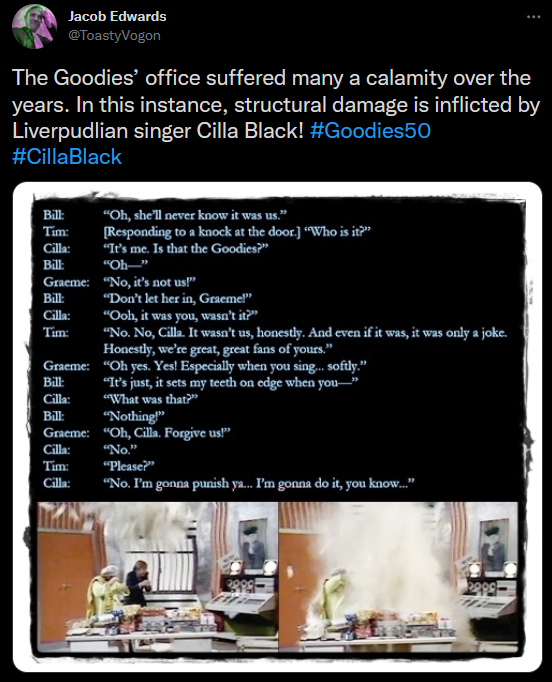
The whole episode is a delightful romp, unabashedly funny, with the Goodies making no bones about playing for laughs. But is there an underlying message? Well, possibly.
If we come back to those opening scenes, the musicians are always referred to as having been ‘stolen’—not ‘kidnapped’ or ‘abducted’. On the surface, this is nothing more than an infelicity gag. Yet, could it not also signify the concept of music as property? Certainly this is what underpins the Music Master’s mad scheme:

Having destroyed the live music industry and taken control of all the artists, the Music Master plans an outrageous series of collaborations—ghastly stuff, but what choice will the world have?

The Goodies are concerned about culture and its degradation/loss. As with ‘Pollution’, this is an episode where they set out on their own initiative to right the wrong. But is it such a big deal, this doomsday scenario where all-powerful music producers lock up the talent and control what we listen to? While caped guest star Henry McGee is busy selling the villainy, we might easily overlook the prescience of his machinations.
Consider an industry that turned its back on live musicianship; that became programmable; that fell to the dark side of dance videos and voice modulators and is predicated now more on celebrity than sound. Fifty years on, has that once-cherished art form we call music not devolved in precisely the manner those Super Chaps Three sought to forestall?
To rub salt in the wound, the BBC felt contractually obliged to destroy most of the (gloriously live-jammed) music recorded for The Goodies itself. It is only through the efforts of sound supervisor Adrian Bishop-Laggett that any of the master tapes were ‘salvaged’ (ie. stolen!).
‘The Music Lovers’, if we follow this train of thought and put on our most pretentious analytical glasses, may be seen not only as an embodiment of, but also a plea for, spontaneity: the Goodies encapsulated!
Or as the Philharmonic Glee Club Rock‘n’Roll Band so rightly put it: “It was not / exactly what / we, pla-a-anned.”
Long may that sentiment rule!
Jacob Edwards, 29 October 2021
Tweets:
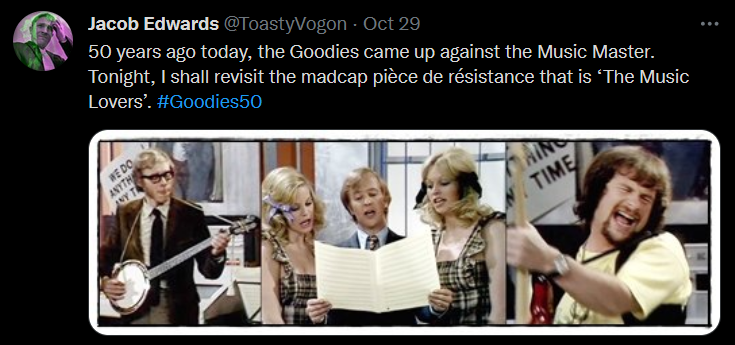
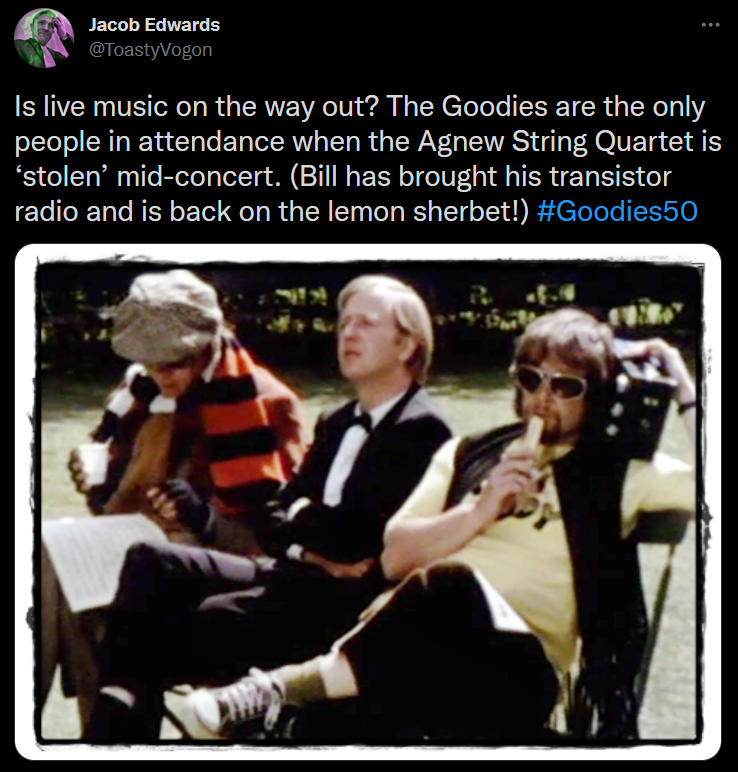
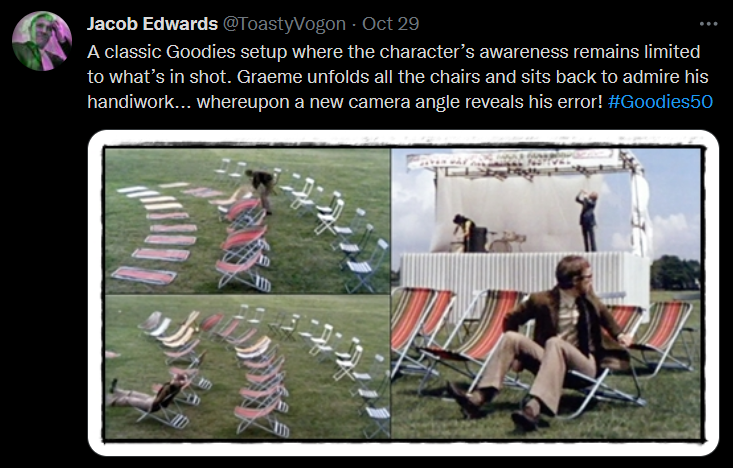
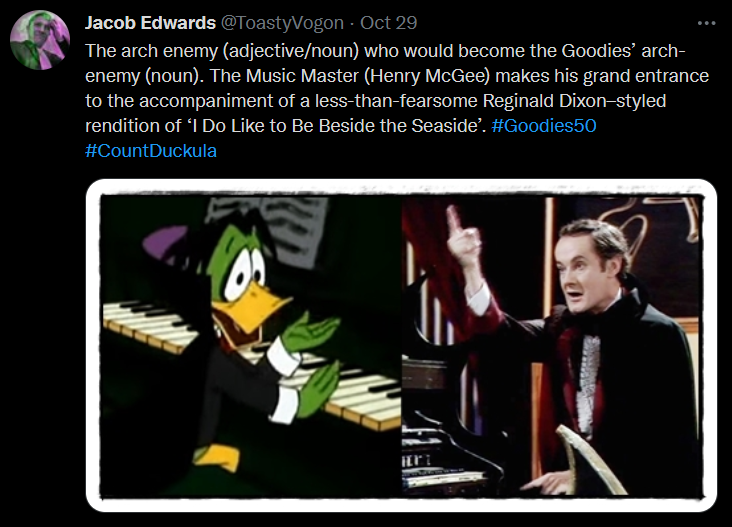
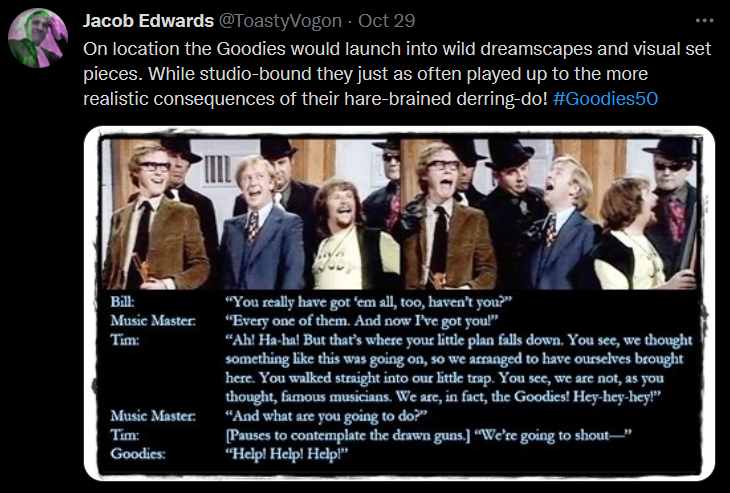
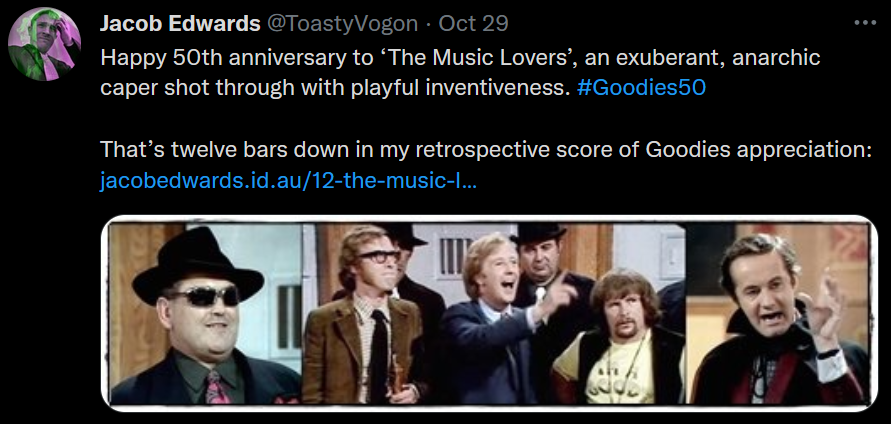
[1] All highly memorable, though perhaps not the most impactful of the Goodies’ re-imaginings. (These would come roaring to life in Series 3’s ‘The New Office’!)
Previous: The Lost Tribe
Next: Culture for the Masses
